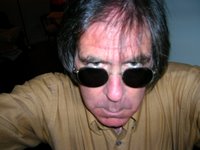June 21



[When Goodman attended Queens College, in New York, one of his classmates was singer Paul Simon. Chaney, from Meridian, Mississippi had joined the Congress on Racial Equality (CORE) in 1963 and was engaged in fieldwork with Goodman and Schwerner when the small group was arrested for a traffic violation on the day of the murders. They had been released and were heading for home when two cars filled with members of the KKK stopped and then shot them. The Mississippi Klan’s Imperial Wizard, Sam Bowers had ordered Schwerner's (pictured below) "elimination" in May 1964.








